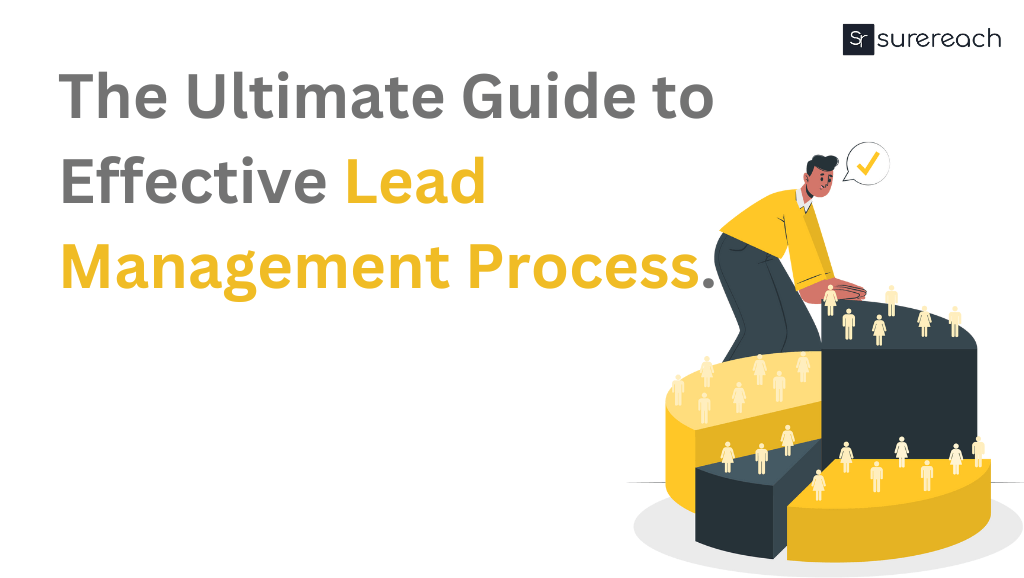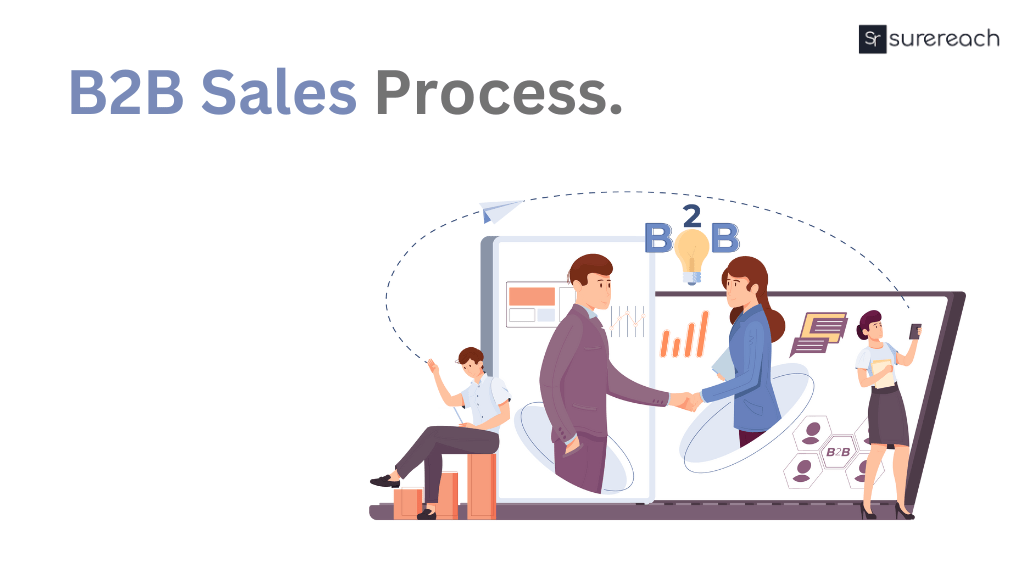Introduction
Capturing and converting potential clients in today’s ever changing business environment is not just an art; it’s a science. Your key to learning efficient sales leads management systems is this article. We’ll talk about what Lead Management really means, why setting it up properly is crucial, what it really means for companies of all sorts, large and little, as well as what it truly means for it.
What is Lead Management?
It is sometimes referred to as “sales lead management” when a systematized combination of tactics, tools, and procedures is used to gather, develop, and turn prospective clients into paying clients. It involves the careful monitoring of interactions, the administration of lead data, and the tactical guiding of leads through the sales funnel. It is the beating heart of effective client acquisition and retention.
Benefits of a Well-Executed Lead Management Process
Businesses of all sizes may benefit from a well-functioning management system in a variety of ways:
- Enhanced Sales Efficiency:Sales teams are given the ability to focus their efforts on high-potential prospects thanks to a simplified procedure, which greatly increases conversion rates and sales income.
- Fostered Customer Relationships: Effective lead nurturing fosters trust and rapport with potential customers, leading to deeper, more meaningful relationships that translate into loyal clientele.
- Informed Decision-Making: Businesses may make data-driven, well-informed judgments about marketing and sales because to the environment’s abundance of data, which gives them important insights into consumer behavior.
- Minimized Lead Leakage: With a finely-tuned lead management system in place, fewer leads slip through the cracks, ensuring that no potential opportunities go to waste.
Also Read: Maximize Business Sales and Revenue
How to Set Up Your Lead Management Process (Explained)
Now that we understand the significance, let’s embark on a detailed journey of setting up a successful management process, step by step:
1. Define Your Ideal Customer
The foundation of an effective process is a crystal-clear understanding of your ideal customer. Create detailed buyer personas that encapsulate their pain points, needs, preferences, and demographics. These personas will serve as your guiding stars throughout the process.
2. Lead Generation
Once you’ve defined your ideal customer, it’s time to cast your net wide and reel in potential leads. Employ various lead generation strategies, such as using lead generation tools, social media marketing, content marketing, email marketing, and paid advertising, to attract prospects to your business.
3. Lead Capture
It’s essential to have procedures in place to gather information from potential leads who express interest. Creating engaging landing pages and forms for your website usually falls under this category. A central Customer Relationship Management (CRM) system is then used to store this data.
4. Lead Scoring
Not all leads are created equal. Implement a lead scoring system to assign values to your leads based on their interactions and behaviors. This allows you to prioritize leads and focus your efforts where they matter most.
5. Lead Nurturing
Lead nurturing is the heart and soul of lead management. Engage your leads by providing them with individualized content, such as pertinent emails, webinars, and educational blog entries. Keep them informed, build trust, and guide them along the sales funnel.
6. Sales Handoff
As a lead progresses down the funnel and exhibits buying intent, it’s time for the sales team to step in. Implement a seamless handoff process to ensure that leads are transitioned smoothly, without any hiccups in communication.
7. Analytics and Optimization
The journey doesn’t end with conversion. Regularly analyze your lead management process to identify bottlenecks, areas for improvement, and opportunities for optimization. Be prepared to adapt your strategies as you gain more insights.
Want help in effective lead generation? Use Surereach– The best lead generation tool to prospect business email id, find phone numbers and find email ids from different platforms like LinkedIn, Zaubacorp, Instafinancials etc. View our plans and pricing and book a free demo now.
Sign up and get 20 credits for free!
We have 3 million+ contacts stored to connect you with prospects all over India
Why is it Important to Implement a Lead Management Process?
The importance of a well-structured process cannot be overstated. Let’s explore why it should be a non-negotiable element of your business strategy:
Staying Competitive
In today’s cutthroat business landscape, staying competitive is not an option; it’s a necessity. Businesses that neglect effective management risk falling behind their competitors, as competitors are actively optimizing their strategies.
Maximizing ROI
Every marketing dollar counts. Your marketing efforts will be directed toward the most promising leads if you practice effective lead management, which will maximize your return on investment. It’s not about spending more; it’s about spending smarter.
Improved Customer Experience
Your hidden weapon in a world where the client experience is everything is efficient lead management. Potential customers will remember personalized contacts, prompt replies, and a customised approach, which will improve the reputation of your company.
Data-Driven Decision Making
It doesn’t just generate leads; it generates data—a lot of it. This data becomes the bedrock upon which you can build your marketing and sales strategies, ensuring they are not guesswork but calculated moves based on real customer insights.
Building a Scalable Business
As your business grows, so does the complexity of lead management. Having a structured process in place ensures that you can scale your operations seamlessly without losing efficiency or letting leads slip through the cracks.
FAQs
Q: How do I choose the right CRM system?
A: The choice of CRM depends on your business’s specific needs and budget. Consider factors like scalability, integrations, and user-friendliness.
Q: Is it necessary for small businesses to invest in lead management?
A: Absolutely. Effective management of leads is adaptable and scalable, making it suitable for businesses of all sizes. It’s an investment in long-term growth and sustainability.
Q: Can I see quick results from a lead management process?
A: While results may vary, you can expect to see improvements in lead conversion rates and sales efficiency within a few months of implementing a well-structured process.
Q: Are there any risks of data breaches in lead management?
A: Yes, data security is a concern. Ensure you implement robust data protection measures, use secure CRM software, and educate your team on data security best practices.
Q: What’s the role of artificial intelligence (AI) in lead management?
A: AI can significantly enhance the management system by automating tasks, analyzing vast amounts of data to identify patterns, and providing valuable insights for more effective lead nurturing and conversion.
Q: Is lead management a one-time setup, or does it require ongoing maintenance?
A: It is an ongoing process. Regularly review and optimize your strategies to adapt to changing market dynamics and customer behaviors.
Conclusion
Effective lead management is important for long-term success; it goes beyond simple commercial strategy. Your firm can be set up for growth, success, and tenacity by comprehending its basics, appreciating its many benefits, and creating a solid management procedure. In a world where customers are the ultimate prize, the key to gaining their hearts and money is a well-run process.








Sanidhya Arora
More posts by Sanidhya Arora